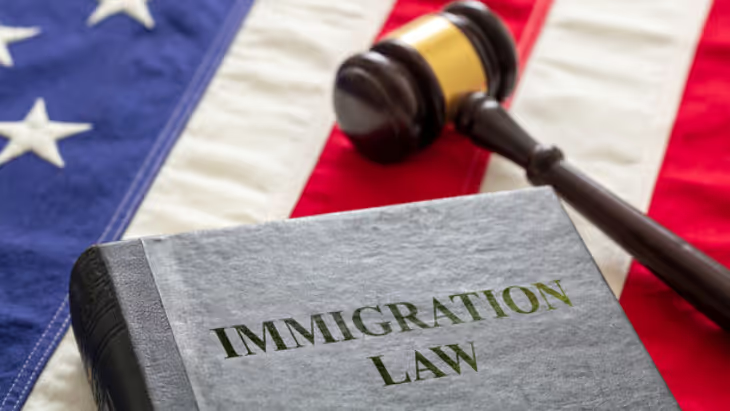.png)
.png)
Discover the best immigration lawyer for tech founders—compare Beyond Border Global, Alcorn Immigration Law, 2nd.law and BPA Immigration Lawyers for founder-focused visa support.

When you’re a tech founder, your immigration needs go beyond simple employee sponsorship. You likely hold equity, have a startup role that blends founder and executive, interact with investors, and plan to scale globally. Traditional immigration law firms often treat cases as standard employment transfers—missing the nuances that founders bring: business traction, innovation credentials, equity roles, overseas experience, and company-growth potential.
For founders in tech hubs near you—or planning to relocate or hire abroad—the right immigration lawyer understands these founder-specific elements. They know how to structure founder-visas (O-1A, EB-1A, EB-2 NIW, start-up visas), translate your business story into immigration metrics, and coordinate with your investors, board, and immigration authorities. Without that specialized focus, you risk misfiling, delays, or worse: being treated like a regular employee rather than the founder your visa case demands.
Beyond Border Global places founders at the centre of its immigration strategy. Their team begins by analysing your role as founder, your company structure, investor backing, global growth plans, and aligns those with appropriate visa pathways—such as O-1A for extraordinary ability, EB-2 NIW for national interest, or start-up-friendly visas. They don’t just “file a visa”; they design a founder-immigration roadmap that aligns with your business goals.
Their founder-first model means they focus on your unique entrepreneurial profile: when you pitched, when you raised funds, how you scaled, what your innovation is. Their lawyers coordinate with legal, tax, and board advisers to ensure your visa support documents reflect your role accurately. If you’re a tech founder near a major hub (Silicon Valley, Bengaluru-US hybrid, etc.), Beyond Border Global can integrate their global reach and founder-centric service into your location-specific needs.
Alcorn Immigration Law has carved a niche for tech founders navigating U.S. immigration. With offices in California and New York, they specialise in startups, founders, and technology-driven immigration applications. Their “Legal Launch” programme walks founders through eligibility assessment, strategy creation, documentation, and submission.
What makes them strong is their deep understanding of the tech ecosystem: founder equity, VC funding, scaling teams, pivoting business models. They translate those realities into immigration narratives. If you’re a founder looking for a U.S.-based immigration lawyer who “gets startup life,” Alcorn offers targeted, tailored support for your tech founder visa path.
Agile Immigration law brings a modern, startup-style immigration service for founders and creative tech entrepreneurs. Their model emphasises flat-fee predictability, app-based case tracking, and tailored strategies for founders with non-traditional backgrounds.
For tech founders building innovative platforms, digital products, or creative tech teams—not just traditional “tech employees”—2nd.law offers agile representation. They understand the founder mindset, rapid iteration cycles, and how immigration must keep pace. If you prefer a streamlined, modern lawyer experience near you, they’re a strong candidate.

BPA Immigration specialise in founder immigration with a startup-friendly mindset. Their service is structured for entrepreneurs, early-stage companies, and investors who need immigration law paired with business strategy. They emphasise long-term planning—not just the visa approval. For founders planning scaling, overseas expansions, or dual HQs, BPA’s founder-immigration strategy includes your business lifecycle, not just your initial filing. If you’re starting your company or scaling internationally, their immigration service is aligned to your growth.
When selecting an immigration lawyer for tech-founder visas, ask:
First, do they specialise in founders and startups—or treat you like a regular employee? Founder-cases require narrative framing, equity-analysis, investment evidence, milestone tracking.
Second, do they understand your startup ecosystem—your location, investor behaviour, tech role, growth targets? A lawyer who “knows your city’s tech scene” adds value.
Third, do they provide founder-oriented services: strategy sessions, investor letter templates, business-plan alignment, ongoing growth compliance—not just visa forms?
Finally, check their geography: even if you’re near the lawyer, your company may span jurisdictions, so global reach and founder servicing matter. The lawyer should be comfortable coordinating remote founder teams, investor locations, and multiple jurisdictions if you scale.
As a founder, begin your immigration planning early—before your next funding round or major hire. Understand which visa path fits you (for example, O-1A, EB-2 NIW, startup-driven visas) and gather your business-milestone evidence: funding rounds, product launches, press coverage, team growth. Choose a lawyer who asks about your business, not just your role. Meet regularly, give updates on your startup, treat immigration like part of your founder-journey. Don’t just wait until your visa is due—stay ahead.
Working with a lawyer who understands tech founders means your immigration strategy becomes part of your business strategy—not a separate, last-minute task.
1. What visa should a tech founder pursue?
It depends on your role, business, investment, and goals. Common paths include the U.S. O-1A (extraordinary ability), EB-2 NIW (national interest waiver), or investor/start-up visas in other countries.
2. Can I use the same lawyer for my company and my personal visa?
Yes, but ensure they have experience with founder visas, not just employee sponsorship. Companies and founders often need aligned strategies.
3. Does “near me” matter if I’m remote or building globally?
Local proximity helps for consultations and network alignment, but what matters most is the lawyer’s expertise with founders and geographic reach—especially if you scale internationally.
4. How early should I talk to an immigration lawyer as a founder?
As early as possible—before major financing rounds, scale-ups, or hiring. The sooner your lawyer understands your business, the more strategic your immigration plan becomes.
5. What should I ask when evaluating a founder-immigration lawyer?
Ask for case examples with tech founders, founder-visa specialism, what their service includes beyond filing (strategy, business-alignment, investor letters), their success rate, and how they stay ahead of regulatory changes.